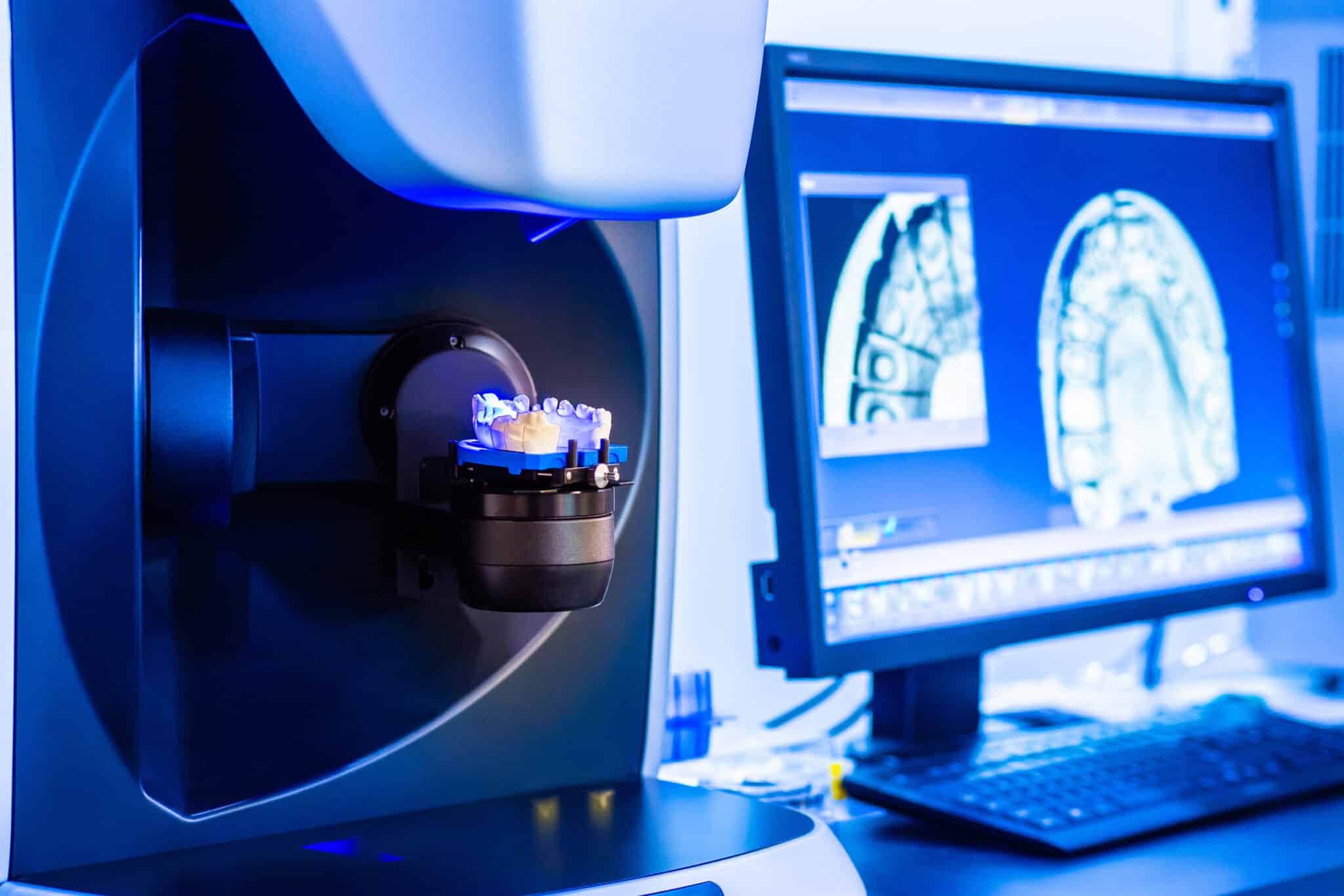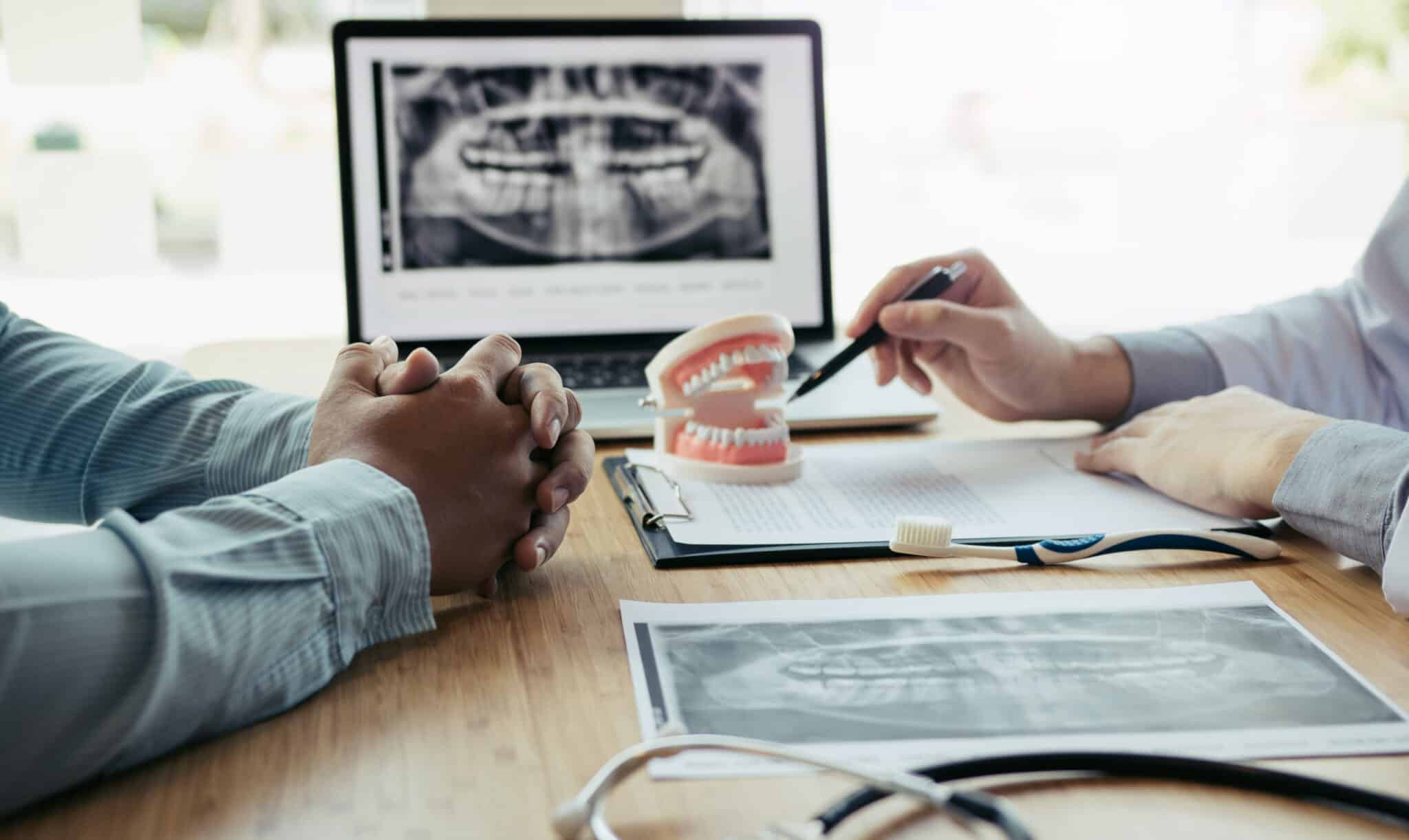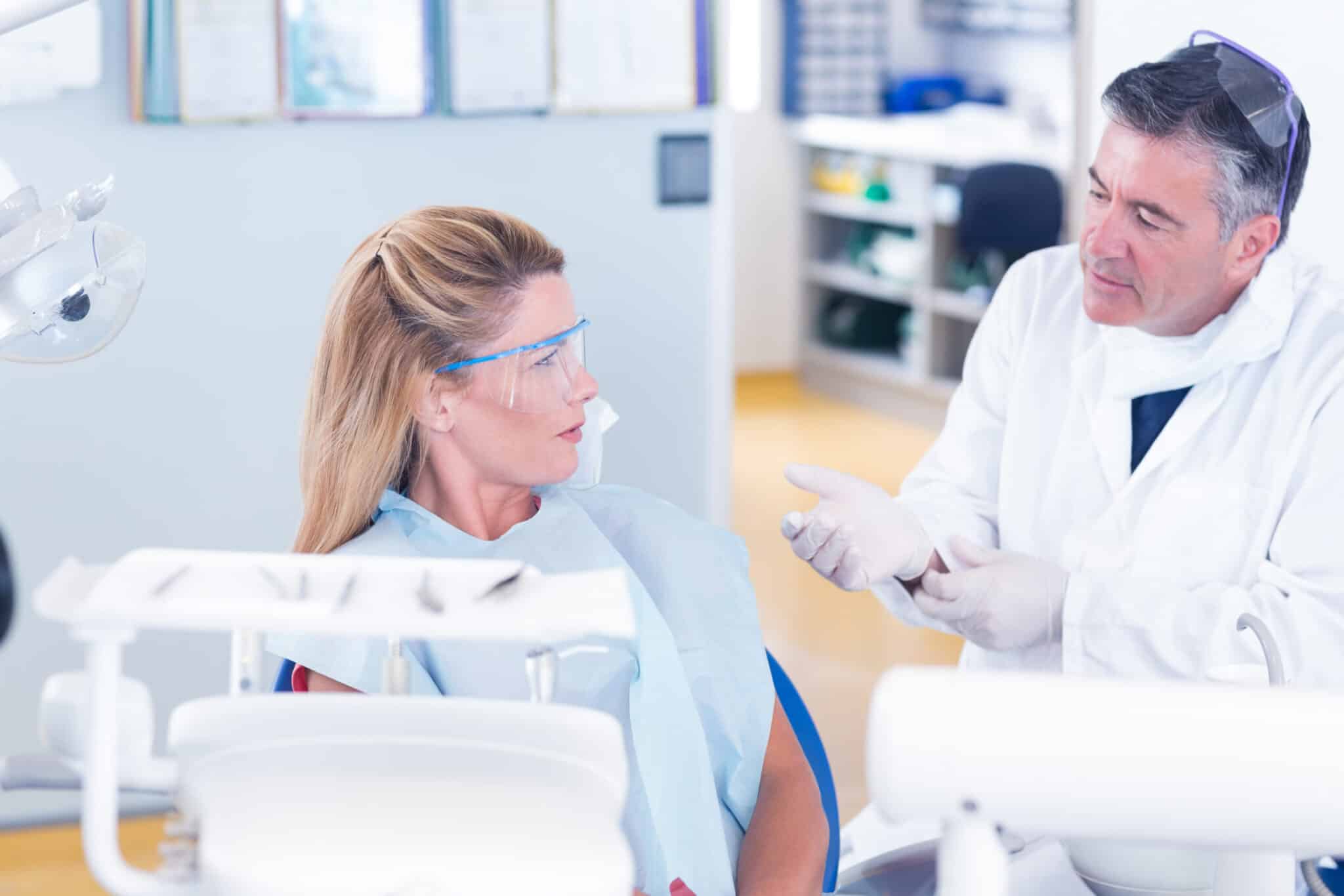A strong relationship between dentists and dental labs is essential for producing quality dental work.
The two parties must be able to communicate effectively with each other to produce results that meet the needs of both the dentist and the patient.
In this blog post, we will discuss the importance of communication in the dentist-dental lab relationship and offer tips on improving communication between these two groups.
Why is Communication Between Dentists and Dental Labs Important?
In the dentist-dental lab relationship, communication is crucial.
The dentist and dental lab must be able to work together and understand each other’s needs for a successful outcome.
The more information exchanged between both parties, the smoother and more successful the outcome.
Porcelain dental veneers, for example, require an understanding of the dentist’s vision and specifications and a detailed plan from the lab to create the desired result.
Effective communication allows dentists and dental labs to communicate any changes or updates on time so that the end product meets both parties’ expectations.
Communication between dentists and labs helps ensure that the patient receives high-quality care and optimal dental work results.
The lab must clearly understand the dentist’s instructions and needs to produce a product that meets them. The dentist, meanwhile, must have confidence that their instructions are being followed correctly to not compromise the patient’s health or wellbeing.
Good communication also helps reinforce trust between dentists and labs. The dentist must trust that the lab has a high level of competence and that they will follow instructions correctly. The lab should also have faith in the dentist’s knowledge and expertise in dental work.

How Can Dentists and Dental Labs Communicate Better?
To foster the crucial communication in the dentist-dental lab relationship, both parties must be willing to put in the effort.
Here are some steps to help dentists and dental labs communicate better.
Step 1: Choose the Right Dental Lab
The first step is choosing the right dental lab. The dentist should seek out a lab they trust and have a good rapport with.
The lab should also be willing to answer any questions or concerns that arise throughout the process.
Step 2: Master Day-to-Day Communication
Day-to-day communication should focus on understanding what each party needs to provide quality work. The dentist should make sure the lab understands their instructions and expectations clearly.
The dental lab, meanwhile, should keep the dentist updated with any changes or issues that arise throughout the process.
Additionally, both parties must be willing to discuss any disagreements or problems.
Step 3: Develop a Long-term Relationship
Finally, dentists and labs should strive to build a long-term relationship built on trust and respect. The more time the two parties spend communicating effectively, the better they will understand each other’s needs.
This will enable them to produce better dental work for the patient and foster a healthier, more effective working relationship.

Step 4: Use Tech to Stay In Better Communication
Tech provides a great way to stay in enhance communication in business. The use of digital tools such as email, social media, and video calls can help keep both parties informed of any changes or issues that arise throughout the process.
By staying connected, dentists and labs can ensure that their instructions are followed correctly, and that quality dental work is produced.
Step 5: Always Be Learning/Improving
Finally, dentists and labs should always strive to learn more and improve communication skills. The more they understand each other’s needs and expectations, the better they can work together to produce quality results.
By taking steps to improve their communication skills, both parties can ensure that they are providing the best care possible for patients.
Executive Wrap Up
The importance of communication in the dentist-dental lab relationship cannot be overstated.
The two parties must be willing to put in the effort to ensure that their instructions are understood correctly and that they both have faith in each other’s judgment.
With the right communication strategies, dentists and dental labs can produce better quality work for their patients.
Additionally, they can develop a healthier relationship based on trust and respect. With regular communication and continual improvement, dentists and dental laboratories can provide the best possible care for their patients.
Do you have any tips of your own? Let us know in the comments!
Dentist/Dental Lab Communication FAQ
Communication is important in a dental office because it helps ensure that the dentist’s instructions are understood correctly and that the lab can produce quality results.
Good communication also helps build trust and respect between dentists and laboratories, which allows them to work more effectively together.
Dentists typically communicate with their patients in a variety of ways. The most common is verbal communication during office visits, but they also may use written or electronic forms of communication such as email or text messages.
Dentists must be clear and direct when communicating with patients so that everyone understands the instructions and expectations.
Some potential barriers to effective communication in a dental practice include language or cultural differences, lack of understanding of medical terminology, and the complexity of dental procedures.
Dental labs are important because they are responsible for creating the dental restorations and appliances that dentists use to treat patients. The quality of the work produced by a lab is essential for ensuring successful outcomes, so dentists and labs need to maintain effective communication.
Dentists and labs can work together with clear instructions and open dialogue to produce the best possible results.
Nonverbal communication is important in dentistry because it helps to establish trust and comfort between dentists and patients. The use of facial expressions, gestures, body language, and eye contact all help convey a message without the need for words.
By using nonverbal communication, dentists can create an environment that allows patients to feel comfortable and relaxed. This, in turn, helps to ensure successful outcomes.


